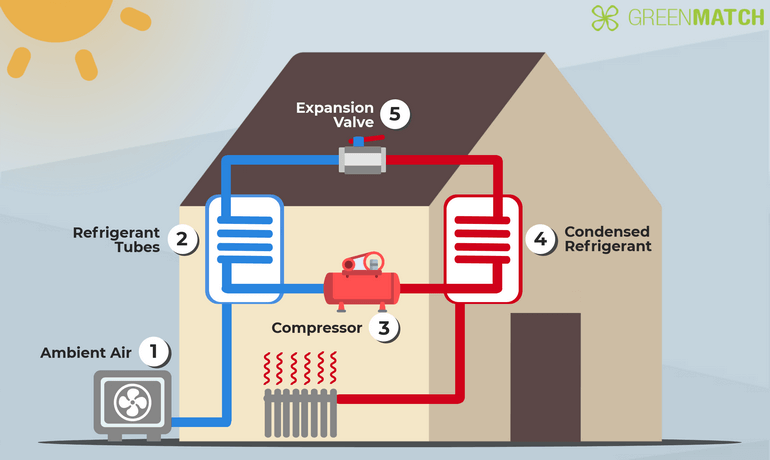Heat pumps are fitted to a growing number of dwellings and are installed both during new construction and during a renovation. The reason for their success stems from an ecological operation and their ability to save energy. However, not all systems are created equal and are, therefore, not the same price.
The price of heat pumps remains accessible within an extensive price range and varying according to technologies. Count between $5,000 and $15,000 to equip yourself with a heat pump. Discover in this detailed article on heat pumps, their different techniques, their operation, their characteristics, their advantages, and disadvantages. You will be able to choose the renewable energy device that ideally suits your needs and your budget.
How Does A Heat Pump Work
The heat pump is heating equipment running on renewable energies. This ecological equipment recovers the natural energy present in the external environment. This energy, distributed among other things by the sun, is present everywhere: in the air that surrounds us, in the ground, or even in the water of the underground aquifers. The heat pump will extract this free energy to reinject it into a heating or domestic hot water production system (water heater).
The operating principle of the heat pump is quite simple. The heat pump draws energy from the natural source (indoor or outdoor surrounding air, groundwater, garden basement) and increases its temperature level to distribute higher heat in the home. An operation that has long earned him to be compared to an “inverted refrigerator.” If the temperature difference between the initial heat source (known as the “cold source”) and that of the heat emitters in the home is significant, the operation of the heat pump is all the more efficient.
When purchasing a heat pump, it is essential to also take into account its electrical consumption. The COP (Coefficient of performance) allows you to learn more about the performance of the heat pump and its ability to heat the home even when the outside temperatures are very low. The main task of the heating engineer is to determine the ideal power of the heat pump so that the device is neither oversized nor undersized. The goal is to achieve maximum savings.

